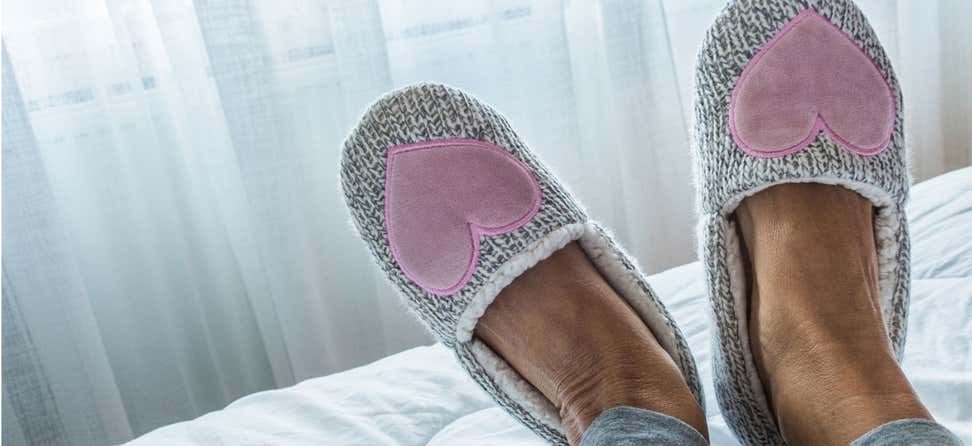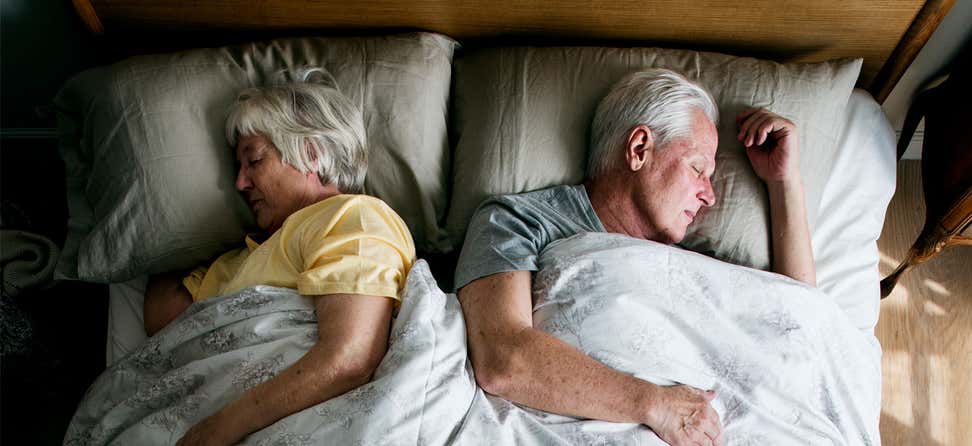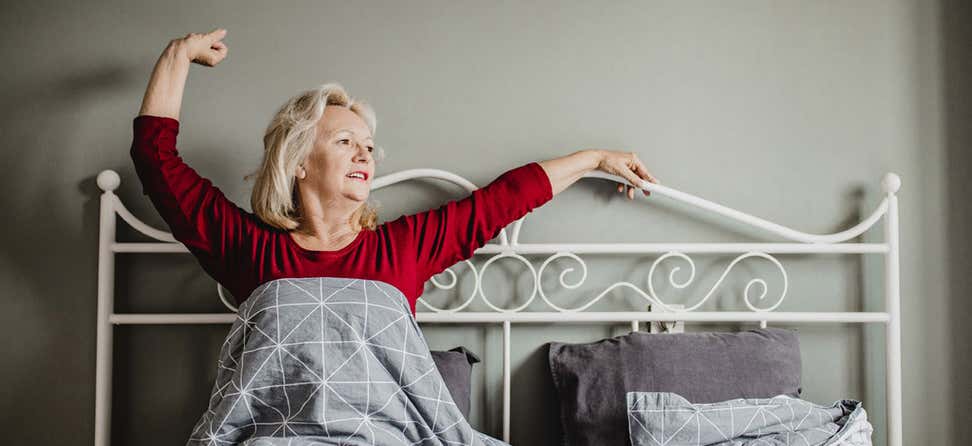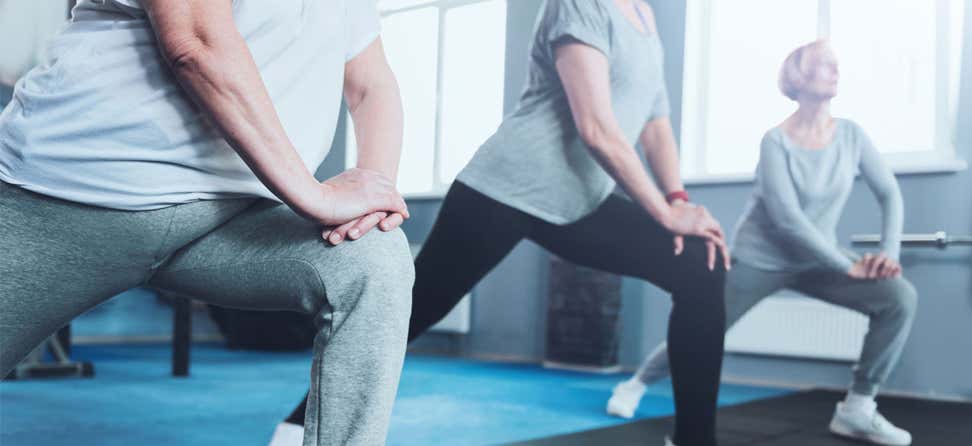Key Takeaways
Getting adequate, restful sleep is important for health and longevity.
Socialization and physical activity are important to improving sleep for older adults.
A medical professional or sleep specialist should be consulted for chronic or severe insomnia to rule out medical causes.
Everyone has occasional insomnia, but if you often have daytime sleepiness or fatigue and/or if you have chronic insomnia (lasting 3 months or more) this may indicate a problem.
The National Sleep Foundation recommends that adults over age 65 get 7-8 hours of sleep per night. (A range is normal and for some individuals, 5-6 or up to 9 hours per night may be appropriate).1
With May being Better Sleep Month, we'll take a look at the effects of poor sleep on your health, and ways in which you can improve your sleep patterns to ensure adequate rest.
Case Study: Restless Joanne |
| Joanne was in her 60s when she began having difficulty sleeping. It was interfering with her ability to concentrate and work to her full capacity during the day. She felt tired and irritable. She had tried “counting sheep” and reading before bed, but had difficulty falling asleep and woke early in the morning. She did not feel well rested during the day. Her healthcare provider prescribed a sleeping medication, but Joanne was reluctant to take it because she was afraid of side effects and did not want to rely on medications. |
What Are the Effects of Inadequate Sleep?
In addition to short-term effects, such as next-day impairment in thinking or performance and difficulties with coping or stress management, short-sleep (< 6 hour per night) increases the risk of high blood pressure, elevated blood sugar, and additional risk factors for heart attack and stroke.2 Getting too little sleep during middle age may increase the risk for dementia later in life.3 Too little sleep has also been associated with weight gain and obesity.
Are There Certain Risk Factors for Insomnia?
Sleep-related breathing disorders, restless leg syndrome, depression, anxiety, alcohol misuse, multiple medical problems and/or chronic illness can increase the risk for insomnia. Some individuals have problems with their natural sleep/wake (circadian) rhythms. Individuals with serious or chronic insomnia should make an appointment with a healthcare provider to rule out and treat any underlying health issues. It will be helpful to keep a sleep log or diary for 1-2 weeks and bring it to your appointment.
Your sleep diary should include:
- time you go to bed and time you get out of bed for the day
- time of morning awakening
- estimated total amount of sleep
- when you got out of bed for the day
- number of awakenings
- symptoms that occurred during the night.
- medications, alcohol, supplements or other agents taken for sleep the night before
- time spent napping during the day
- whether sleep or fatigue interferes with daytime activities
- trouble staying awake while driving, eating, social activities
- whether a bed partner or others report that you have unusual behavior during sleep, such as snoring, interrupted breathing, or leg movements.
What Else Can I Do to Improve My Sleep, Especially As I Continue to Age?
Loneliness and lack of physical activity are also risk factors for insomnia. Taking action to increase socialization and increase physical activity can improve sleep and overall health. The brain centers that control sleep, mood, and emotions all communicate with each other.
- Community centers, senior centers, libraries, universities, adult education programs and AARP are good places to start. They offer lectures, activities, volunteer opportunities, outings, and/or classes that can lessen social isolation and improve mood.
- Physical activity releases chemicals that boost mood, reduce stress and promote health and body rhythms.
- Relaxation exercises such as mindfulness, abdominal breathing, imagery and progressive muscle relaxation can improve mood and promote better sleep.
Simple Steps You Can Take to Increase Sleep Quality
| S chedule |
Have a consistent sleep and rise time; wait until you are sleepy to go to bed |
| L imit | Limit alcohol, caffeine, nicotine, heavy meal before bed |
| E xercise | Add daily physical activity such as walking, but not just before bed |
| E liminate | Eliminate or shorten daytime naps |
| P reserve | Preserve the bedroom for sleep/sex (not TV, reading, or eating) |
| AND | |
| R elaxation | Try to wind down with rituals using a dim light, relaxation exercises; warm bath, gratitude journal, etc. |
| E nviornment | Sleep in a cool, dark environments with no electronic devices; trywhite noise; invest in a comfortable mattress and pillows |
| S ocialization + Sunshine | For some individuals daylight therapy may also be used |
| T ry | Try a soothing activity such as playing soft music or light reading (no bright light) |
What Happened to Joanne? |
|
Joanne found out that the wine she was drinking to “wind down” in the evening was making her insomnia worse. Alcohol often induces sleep but interferes with the ability to stay asleep and get high quality, deep sleep. Joanne also shortened her daytime nap from 45 minutes to 20 minutes and cut back on her caffeine intake. Joanne’s healthcare provider ruled out sleep-related breathing disorders, medical conditions, depression, and other mental health conditions, and prescribed a short-term medication which Joanne took for two weeks and then tapered as she began a program of cognitive behavioral therapy for insomnia (CBT-I). She did not want to continue daily use because she knew that it is common to build a tolerance to the medication and she read research showing that CBT-I was more effective than medication in treating chronic insomnia. Joanne eventually added some new physical activity and socialization activities to her routine. |
Sources
1. Found on the Internet at https://www.sleepfoundation.org/how-sleep-works/how-much-sleep-do-we-really-need
2. Deng HB, Tam T, Zee BC, Chung RY, Su X, Jin L, Chan TC, Chang LY, Yeoh EK, Lao XQ. (2017). Short sleep duration increases metabolic impact in healthy adults: A population-based cohort study. Sleep. 40(10).
3. Sabia, S., Fayosse, A., Dumurgier, J. et al. Association of sleep duration in middle and old age with incidence of dementia. Nat Commun 12, 2289 (2021). Found on the Internet at https://doi.org/10.1038/s41467-021-22354-2
4. Cappuccio FP, Taggart FM, Kandala NB, Currie A, Peile E, Stranges S, Miller MA. Meta-analysis of short sleep duration and obesity in children and adults. Sleep. 2008 May; 31(5):619-26. doi: 10.1093/sleep/31.5.619. PMID: 18517032; PMCID:PMC2398753.









